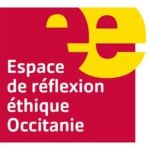Art, ethics and science. Caring for the countryside
Invitation to the Espace de Réflexion Éthique Occitanie, performance by Stéphanie Sagot

Invitation to the Espace de Réflexion Éthique Occitanie conference followed by a performance by Stéphanie Sagot, ''Les nourritures politiques'' [Political food].
As part of the "Battre la campagne" series
As part of the exhibition Artists & Farmers, les Abattoirs, Musée - Frac Occitanie Toulouse are opening their doors to the Espace de Réflexion Éthique Occitanie, whose mission is to promote and disseminate ethical values in prevention, care, innovation and research in the fields of life sciences and health.
Around the theme "Art, ethics and science. Caring for the countryside", the ERE Occitanie has invited two speakers to take the floor in turn:
François Salmeron, "L'art écologique face aux enjeux de l'éthique de la responsabilité": Where do environmental ethics and ecological art intersect, at a time when our lifestyles are upsetting the balance of the planet? How do the works, actions and vision of the world defended by eco-responsible art reveal other ways of creating, living and considering our relationship with the ecosystem? At stake: preserving and regenerating the terrestrial community to which we belong.
Michel Duru will remind us that "Our health is intimately linked to that of the soil, the landscape and the planet". He will show us that recent developments in agriculture include the simplification of landscapes as a result of the reduction in the number of cultivated species and the uprooting of hedgerows, the mass use of synthetic fertilisers and pesticides, and the development of intensive livestock farming that is highly dependent on imported soya. It will also look at our increasingly standardised diet, based on ultra-processed products. These developments, which are harmful to our health and the planet, can be halted by diversifying crops and promoting biodiversity in soils and landscapes, combined with a diet that is less ultra-processed, more varied and more plant-based.
The artist Stéphanie Sagot will then present "Les nourritures politiques" (Political food): made up of extracts from various sources, such as speeches by agriculture ministers, literary works and advertising slogans, this performance sheds a critical light on our agricultural model.
________
François Salmeron is a journalist for Le Quotidien de l'Art, treasurer of the board of AICA France (Association Internationale des Critiques d'Art), and a lecturer at the Université Paris 8 Saint-Denis and the École des Arts de la Sorbonne, where his doctoral research focuses on environmental ethics and aesthetics. He has just published Itinérances écologiques - art, éthique et environnement, published by Caza d'Oro.
Michel Duru is an agricultural engineer and research director at INRAE.
Stéphanie Sagot is an artist, a lecturer in art, a lover of the land and the ocean, the daughter and granddaughter of oyster farmers, and her work is committed to the tenderness and care we can show these elements. Between 2004 and 2016, she founded and directed the Centre d'art et de design en contexte La cuisine, which focuses on food and agriculture in Nègrepelisse, a rural commune in the Tarn-et-Garonne region. In 2016, she also worked with Suzanne Husky on Le Nouveau Ministère de l'Agriculture.
The work of Le Nouveau Ministère de l'Agriculture can be seen in the exhibition Artists & Farmers, until 25 August 2024.

